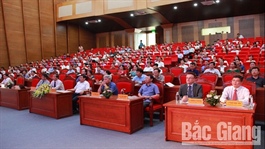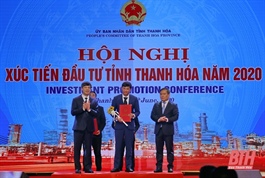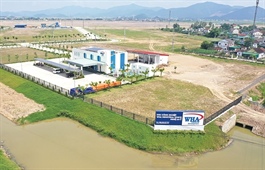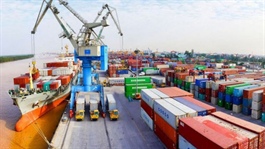Evaluating the regionwide race for overseas investment
Evaluating the regionwide race for overseas investment
Currently, there is a movement of foreign direct investment (FDI) capital flow from China to other countries, especially in the ASEAN region.
Recognising that movement, last year China issued a new Law on Foreign Investment to replace three legal documents. The country has adopted looser policies to foreign investors and has specifically prohibited government interference in business activities and requesting technology transfer from overseas companies. With the new law and accompanying policies, China is expected to return to the race to attract FDI although the US-China trade war has not cooled down.
However, taking advantage of that movement, together with the aim of becoming the third-largest area in FDI attraction, members have signed intra-ASEAN agreements, which have generated convenience for investors in the flow of goods in ASEAN countries.
Besides that, with the efforts to generate a good competitive environment in order to attract FDI capital into ASEAN countries, a legal framework on competition law for each member country has been promulgated.
Apart from these general agreements, each country has its own laws and policies to create its own competitive advantages.
Thailand has adopted outstanding policies such as a 50 per cent reduction in corporate income tax up to five years, and is also planning to revise foreign business laws with more open policies for foreign investors.
Elsewhere, in Singapore, although it does not have a specific investment law, the city-state has created a fair treatment environment between domestic and foreign enterprises, which is both simple and convenient.
Vietnam, meanwhile, boasts many areas of potential compared to other countries. First on the list is infrastructure, which is developing significantly from the capital the government invested into hospitals, transport, international airports, and new ports.
Although this infrastructure cannot be compared to that of leading ASEAN countries such as Singapore and Thailand, the government’s efforts have shown its focus on the promotion of FDI attraction into Vietnam.
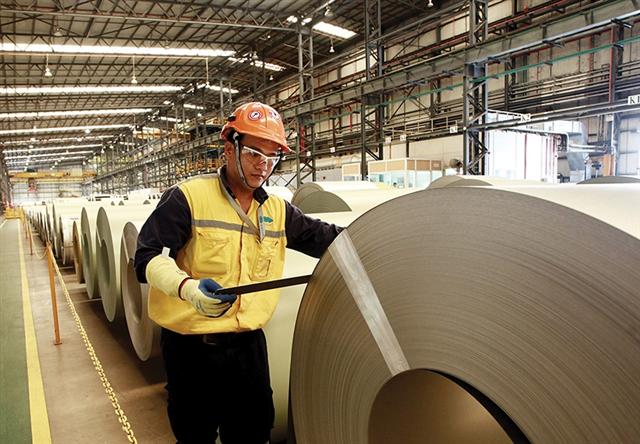
Vietnam’s success thus far in controlling the coronavirus ensures favourable conditions for investment compared to some neighbours
|
Taking advantage
Vietnam also has a great geographical advantage, bordering some countries in Asia and especially China, which could be a good reason for international companies to move their factories to Vietnam during the tensions between the US and China. Vietnam is also the gateway of the ASEAN region to trade with other member countries. In addition, with its long and large coastline, Vietnam becomes an important place adjacent to essential sea routes to generate convenient conditions for import and export.
The labour force is a great advantage for Vietnam too, because with a huge population and young labour force at working age – plus cheaper labour costs – this plays an important role in attracting FDI to Vietnam.
Furthermore, the Vietnamese law system is getting more and more developed to create a transparent and fair environment for foreign investors. According to the ASEAN and East Asia Research Institute, Vietnam’s system of legal documents and management ranks fourth in the region after Thailand, Singapore, and Malaysia. In particular, the Vietnamese law has regulations on investment such as protection against expropriation or no restrictions on inflow and outflow of funds.
Also, with the variety of means of dispute settlement, foreign investors’ interests can be protected well in Vietnam. Meanwhile, the country has promulgated policies to encourage technology transfer and attract FDI on new technologies with several incentives. For example, special incentives for scientific and technology enterprises are implemented, which can be a waiver or reduction of corporate income tax, or a waiver or reduction of land lease.
One of the other advantages is that Vietnam participates in many international investment agreements, creating great advantages for Vietnam’s import and export from and to signed countries in these free trade agreements (FTAs). From that, Vietnam will benefit from the reductions in tariffs mentioned in the agreement.
Hence, with low import and export tax rates, investors will move production and business facilities and invest in Vietnam to trade with third parties which Vietnam has an FTA with. Vietnam will then bring a great competitive advantage compared to other countries, especially China, which does not have an FTA with the EU.
Vietnam is now known as among the first countries controlling the COVID-19 pandemic effectively, with no deaths so far, which creates a wonderful condition for Vietnamese enterprises to return to their normal operation. The issue is how we let foreign investors enter Vietnam now.
Tough barriers
However, apart from competitive advantages, Vietnam must face challenges in the FDI attraction. Although 2019 was one of the bright years in attracting FDI into Vietnam, based on analysis of the FDI capital source, this source mainly focuses on processing and manufacturing industries (accounting for 45.8 per cent), but these industries do not require high skilled labour so it does not create a basis for further training of high skilled labour for Vietnam.
Therefore, in the coming years, Vietnam should focus on directing FDI capital to diversify investment sectors such as high-tech industries, industries for the development of labour skills, and research industries.
Next, based on the World Bank statistics on capital flow trends, investors are gradually choosing mergers and acquisitions as a mode of investment, instead of investing in new production facilities.
Therefore, Vietnam needs to improve laws and regulations in this field so that it is simple and flexible to avoid the cumbersome system. This will be the basis to amend laws on enterprise and investment in order to provide favourable conditions for those who wish to invest in Vietnam.
In terms of establishing a joint co-operation mechanism among countries in the ASEAN Community to compete with countries like China and India in attracting high-quality FDI, it is not very feasible considering the practical conditions of the countries in the ASEAN. There are several reasons for this.
First, the economic gap among countries in the region is still large from infrastructure to development capacity. With this large gap, it is difficult to create a general mechanism to balance benefits among countries when attracting high-quality FDI.
Next, ASEAN countries are still developing, so they still put their national interests first to focus on developing their countries with their own FDI attraction policies to compete with the other countries in the region.
Third, high-quality FDI requires high-quality human resources, but there are some ASEAN low-levelled developing countries that cannot meet the conditions for such a thing.
Lastly, there are still many problems in establishing a general legal institution because each country has its own attraction policy to create its own competitive advantage.
However, in the near future, conducting a general mechanism for this could be carried out thanks to some advantages. The ASEAN has had general transport agreements that facilitate the movement between countries. From that, this is a basis for the formation of a common production base and common economic zones in the community.
Also, the establishment of the ASEAN Economic Community with regulations on tariff reduction creates a fair competition environment among nations. Businesses from large countries in the bloc can invest in small countries to help them grow, which shall close the gap between countries.
Finally, ASEAN member countries have to discuss issuance of general legal frameworks so that they can enhance their own law system. In addition, high-levelled developing countries need to support low-levelled countries to narrow the economic gap.






